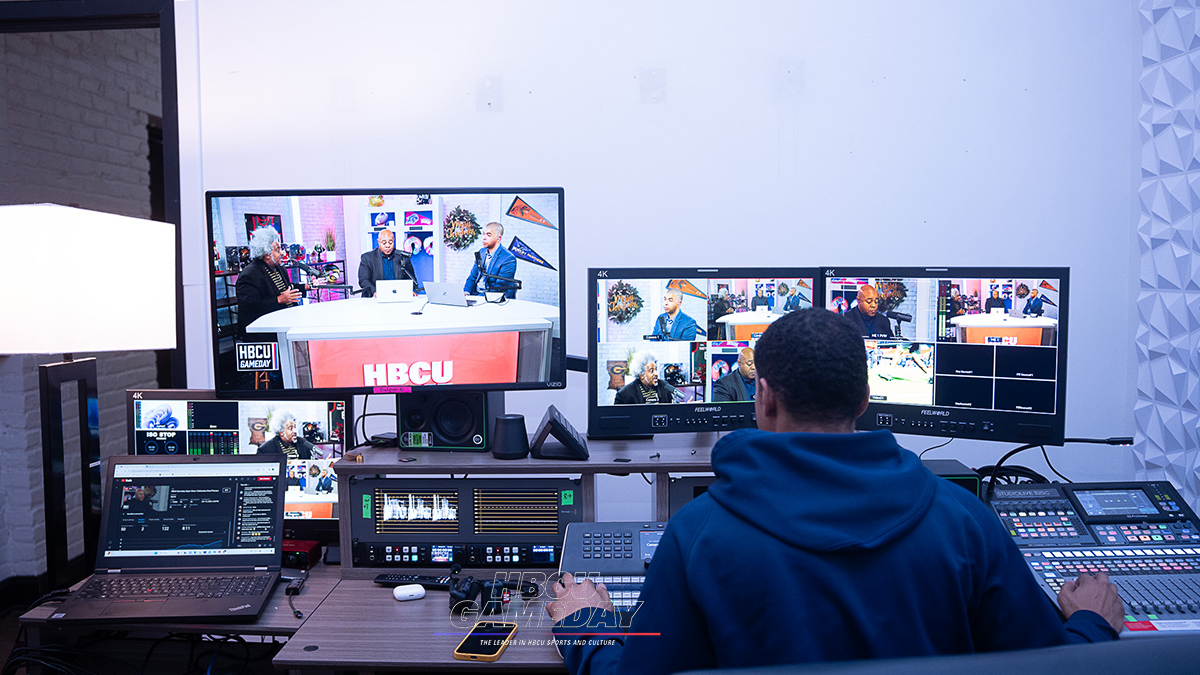Editorial by Howard Henderson, PhD, J. Kenyatta Cavil, Ed.D., Geremy Cheeks, PhD, Kevin Granger,
EdD, and Charles Bishop special to HBCU Gameday.
Historically Black Colleges and Universities (HBCUs) represent just 3 percent of America’s colleges and universities, yet they produce 27% of African-American students with bachelor’s degrees in STEM fields. Despite competing at the Division I level, HBCUs still face challenges when it comes to resources, facilities, budgeting, and more compared to other D-I institutions. This immense discrepancy in funding and recognition is reflective of broader systemic inequities.
However, HBCUs continue to have an outsized impact, especially on educational access and attainment for African American students. Recent polling has shown a renewed interest in attending HBCUs among young Black Americans. This comes after the percentage of Black students enrolled at HBCUs declined from 18 percent in 1976 to 8 percent in 2014, before ticking back up to 9 percent in 2021. Enrollment at some HBCUs like Howard University and Xavier University of Louisiana has increased 25-30 percent over the past five years, signaling a reversal of previous declining enrollment trends. However, controversies continue, like the NCAA’s initial refusal in 2021 to host championship events in Mississippi over the state flag containing a Confederate emblem, revealing continued struggles for equity.
This ecosystem exists at the intersection of HBCUs, Black athletic conferences, social media enterprises, and the Black community more broadly. It is propelled by two pillars: Inside the HBCU Sports Lab Radio Show and FreeMix Radio: The Original Mixtape Radio Show.
Although based in Houston and Washington D.C. respectively, these shows cater to a national Black audience that hungers for more empowering representations. They intentionally bypass the profit-driven mainstream media ecosystem by emphasizing narratives of HBCU excellence that serve as a counterpoint to tired tropes. Through thoughtful commentary and storytelling, the shows create space for marginalized voices and experiences while connecting local communities to the national HBCU landscape. The decentralized nature of these platforms allows for organic relationship-building and the free exchange of ideas.
The HBCU sports ecosystem acts as a public sphere, connecting local, national, and international Black communities. It maximizes social capital through the decentralized exchange of information via mediums like radio, podcasts, and streaming. This allows the empowering stories of HBCUs to reach wider audiences. It also popularizes HBCU sports culture, influencing related industries.
The ecosystem is a response to historic marginalization as well as the evolving multimedia landscape of college sports and entertainment. It aligns with social ecology theory, which views ecological issues as social challenges best addressed through grassroots community empowerment. The HBCU ecosystem exemplifies this by promoting the self-determination of marginalized communities.
However, to fully understand this ecosystem, we must examine the broader conditions and social structures in which it exists. We can apply six key questions from the framework for studying African American culture:
- What were the historic causes of HBCU empowerment through social media?
- Where does the HBCU sports ecosystem participate in the social media landscape?
- How does this ecosystem participate?
- How does blackness exist in these sporting spaces?
- How are HBCUs organized within conferences and informal/formal social media spaces?
- What social structures shape the HBCU experience
Answering these questions will provide crucial insight into how marginalized communities can leverage new technologies and decentralized platforms to amplify their narratives. It will also elucidate power dynamics around identity, representation and access in sports media.
As thought leaders, we have an obligation to examine these issues. The HBCU sports ecosystem represents the best of social ecology theory applied to sports culture. However, its evolution continues. We must remain cognizant of its historic origins while assessing current and future opportunities.

The decentralized nature of platforms like radio shows and podcasts has democratized sports media. Still, many inequities remain. The ecosystem empowers collective narratives, yet power remains concentrated among a few key gatekeepers. As it grows, will alternative platforms become increasingly corporatized? How can organic community ownership be maintained?
Furthermore, we must ensure the empowerment message reaches wider audiences, not just sports fans. The lessons from this ecosystem can shape more equitable media representations and information exchange. Its vibrancy counters dominant narratives about HBCUs and Black culture. However, resonance beyond the niche depends on accessibility.
The HBCU sports ecosystem arose from marginalization but now drives empowerment. As it continues evolving, we have a duty as thought leaders to guide this progress. Our scholarship must analyze current successes while safeguarding future community-centered growth. This will determine whether the ecosystem fulfills its democratizing potential or succumbs to replicated power imbalances.
Either way, it remains a space where blackness is celebrated and HBCU excellence shines bright.
Why It Matters
The vibrant HBCU sports media ecosystem is both a response to marginalization and a force for empowerment. It matters because representation shapes reality. By countering dominant narratives, this ecosystem expands the public understanding of Blackness and HBCU excellence.
Democratized media platforms allow historically excluded communities to shape their own stories. This ecosystem provides a roadmap for how decentralized media can transform power dynamics and social structures. Its inclusive ownership model is key if the ecosystem is to avoid replicating existing inequitable systems as it grows. This fresh approach to sports media serves
as a microcosm of what’s possible in empowering marginalized communities and advancing social equity.
